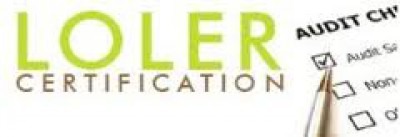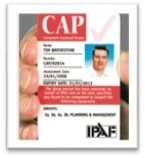Lifting Operations and Lifting Equipment Regulations 1998 (LOLER)
These Regulations (often abbreviated to LOLER) place duties on people and companies who own, operate or have control over lifting equipment. This includes all businesses and organisations whose employees use lifting equipment, whether owned by them or not.

Lifting equipment must be thoroughly examined in a number of situations, including:
- Before first use (unless there is a valid Declaration of Conformity made less than 12 months earlier)
- Where it depends on installation, or re-installation / assembly at another site
- Where it is exposed to conditions causing deterioration, liable to result in danger
Records of thorough examinations should be made and where defects are identified, they should be reported to both the person using the equipment and to any person from whom it has been hired or leased.
IS YOUR LIFTING EQUIPMENT LEGAL AND IMPORTANTLY, SAFE TO USE?

We keep our customers informed of any changes to the legislation made by the HSE and how we will accommodate these changes.
NEVER FORGET THE LOLER DATE !
Once you are fully set up on our system as a customer, we do the hard work and REMIND you before the LOLER Examination is due on your lifting equipment, making sure you keep within all regulations and your business is safe from prosecution.
All we need is the current LOLER date to put into our system and then we will contact you!

LIFTING EQUIPMENT
Lifting equipment is any equipment used for lifting and lowering loads and includes any accessories used in doing so (such as attachments to support, fix or anchor the equipment).
We carry out Thorough Examinations on the following equipment:-
·Mobile Elevated Working Platforms (MEWPs) “Cherry Pickers, Scissor lifts”
·Truck/Van Mounts
·Trailer Mounts
·Pallet Trucks
·Vehicle Lifts/Ramps– Garage Equipment
·Vehicle Tail Lifts
·Hiab’s (Lever Operated)
·Fork Lift Trucks (Brakes and Steering are thoroughly checked along with the Lifting mechanism)
·Skip Wagons and Chains (The mechanism on the rear of a refuse collection vehicle for raising the bins to empty the rubbish into the compactor is lifting equipment and is covered by the requirements of LOLER)
·Back Hoe Excavators
·Mini Excavators
·Dumpers
·Telehandlers
·Patient Hoists, Mobility Hoists, Pool Hoist (Manual Operated), Disability Hoists (As hoists used to lift patients, e.g. from beds and baths, in hospitals, leisure centres and residential homes are provided for use at work and are lifting equipment which LOLER applies, the duty holder, e.g. the NHS Trust or the owner of the residential home must satisfy their duties under LOLER)
·Climbing Kits– (Excluding Sealed Rescue Kits)
·Lifting accessories (see below)
LIFTING ACCESSORIES
Lifting accessories are pieces of equipment that are used to attach the load to lifting equipment, providing a link between the two.
Examples of lifting accessories include:
- Fibre or rope slings.
- Safety Harnesses & Lanyards
- Chains (single or multiple leg)
- Hooks
- Eye
- Bolts
- Spreader Beams.
- Magnetic and Vacuum devices
- Plant Equipment attachments
If you have any lifting equipment that requires the ‘Thorough Examination’ under the LOLER regulation, don’t hesitate to contact us.
We will be more than happy to provide you with a FREE, no obligation quote

